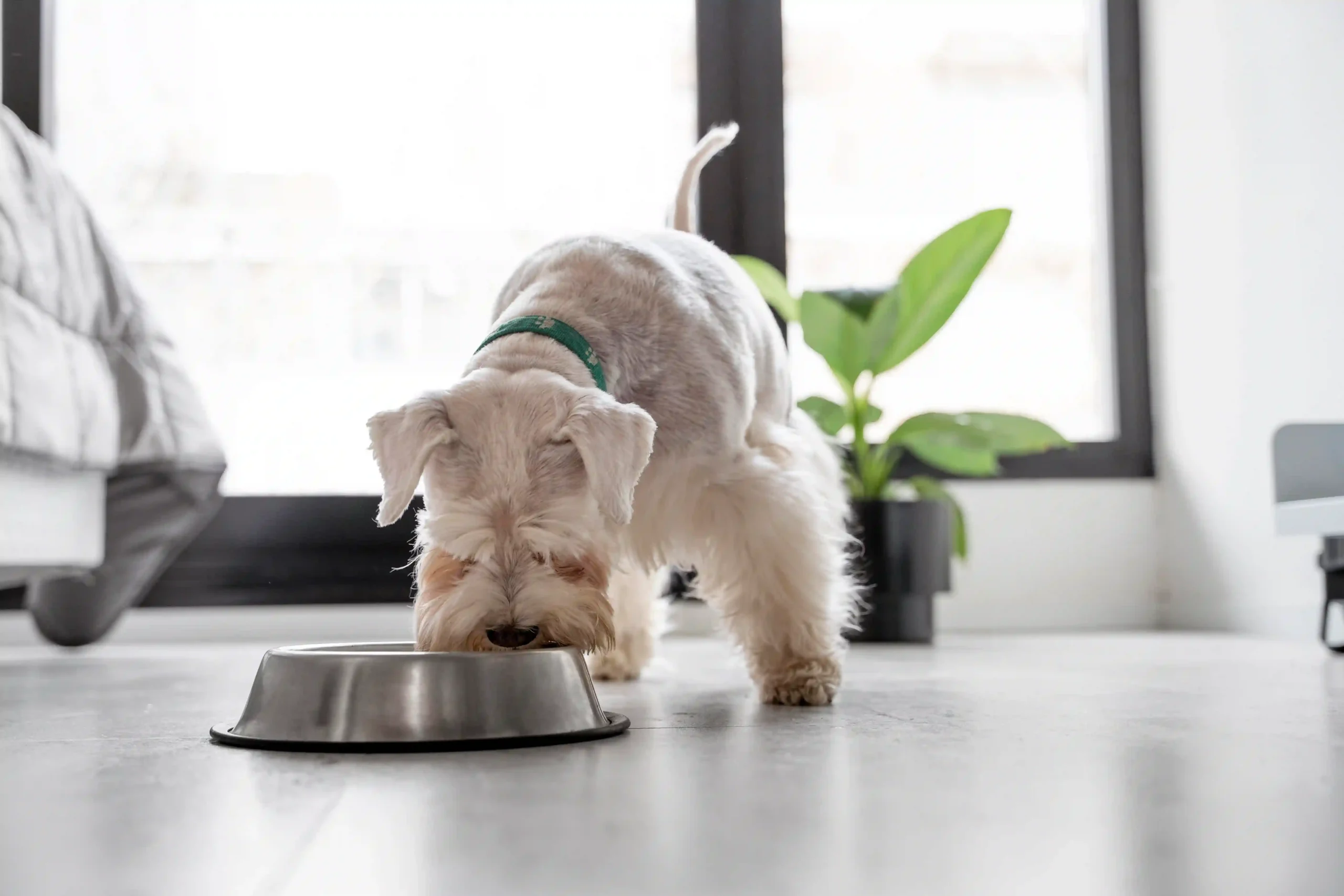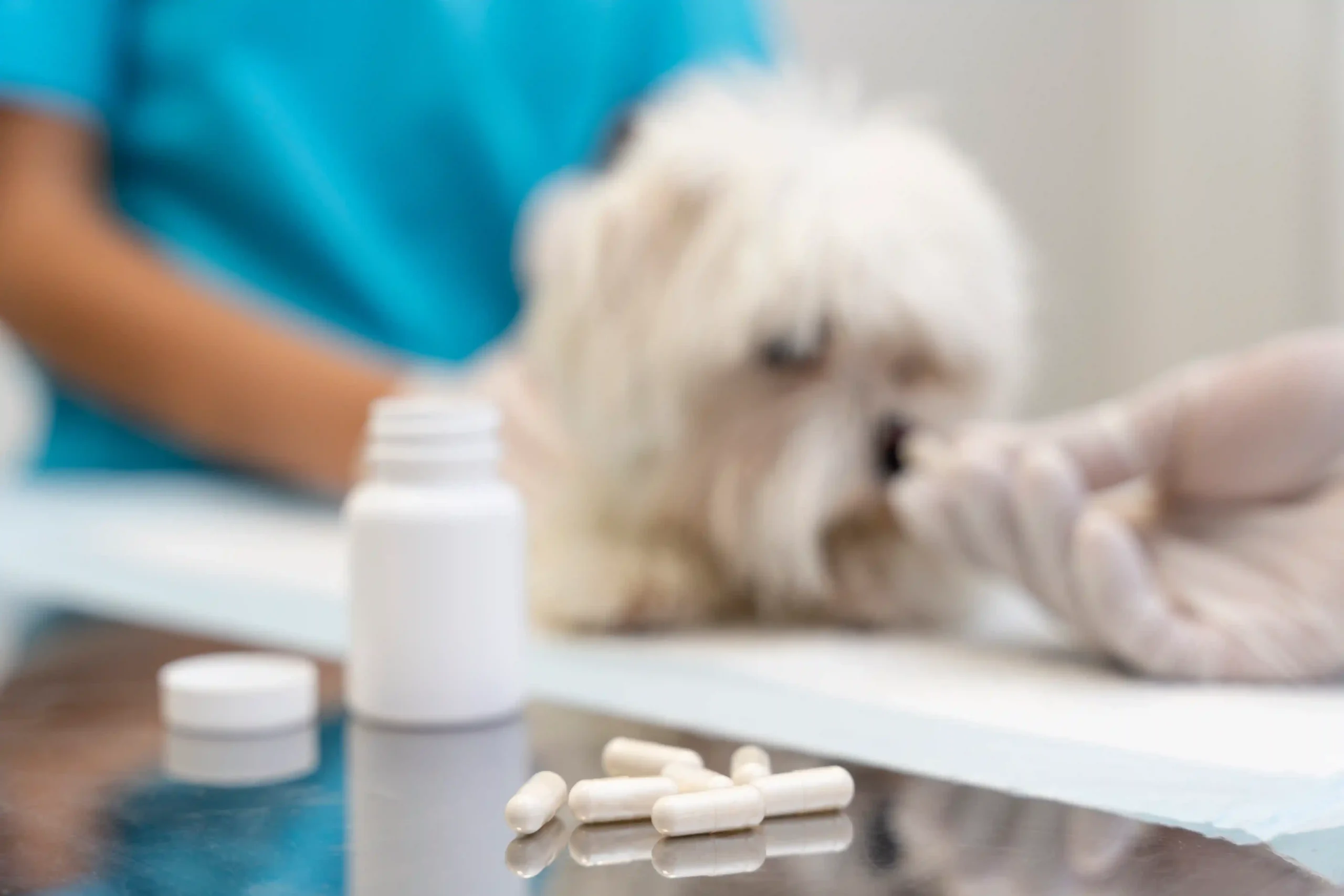
The Importance of Gut Health in Dogs
Gut health plays a vital role in your dog’s overall well-being, affecting everything from digestion to behaviour. A healthy gut helps with nutrient absorption, immune function, and even emotional balance. Understanding the importance of gut health and how to maintain it is key to ensuring your dog lives a long, happy, and healthy life.


What is Gut Health
Gut health refers to the balance of the gastrointestinal (GI) system, including the stomach and intestines, and the microorganisms (bacteria, fungi, and viruses) living in the gut. This microbiome helps digest food, produce nutrients, and protect against harmful pathogens. Maintaining a balanced microbiome is essential for a dog’s health.
Why is Gut Health Important for Dogs?
1. Digestive Efficiency
A healthy gut ensures food is properly digested, nutrients are absorbed, and waste is expelled effectively. Dogs with gut imbalances may experience symptoms like diarrhoea, constipation, bloating, and gas, leading to malnutrition, even with a good diet.
2. Boosting Immunity
The gut is home to a large portion of a dog’s immune system. Healthy gut bacteria help regulate immune responses and fight off harmful invaders. An imbalanced microbiome can lead to infections, allergies, or autoimmune issues.
3. Mental Health and Behavior
The gut-brain axis links the gut to the brain, meaning gut health can directly affect your dog’s behaviour and emotions. An imbalanced microbiome has been associated with anxiety, depression, and aggression. Ensuring a balanced gut may improve your dog’s mental health and behaviour.
4. Weight Management
Gut health also plays a role in regulating metabolism and weight. An imbalance can cause weight issues, including obesity, by promoting fat storage and affecting appetite regulation.
5. Skin and Coat Health
Your dog’s skin and coat often reflect their gut health. Poor digestion can lead to skin problems like itching, hot spots, or dull coats. A healthy gut helps absorb nutrients that are crucial for maintaining skin and coat condition.
How to Maintain Healthy Gut Flora in Dogs
1. Quality Diet
A balanced diet with adequate protein, fiber, and healthy fats supports gut health. Incorporating prebiotics and probiotics (such as yogurt or fermented foods) can also help maintain a healthy microbiome.
2. Exercise
Regular physical activity promotes healthy digestion and weight management, helping the gut function optimally. Outdoor play and daily walks keep the digestive system moving efficiently.
3. Probiotics and Supplements
Probiotics are beneficial bacteria that support gut health, especially after illness, stress, or antibiotic treatments. Adding probiotics through supplements or certain foods can restore gut balance.
4. Hydration
Ensuring your dog has access to fresh water is crucial for digestion and the movement of food through the intestines. Dehydration can lead to constipation and digestive issues.
5. Vet Checkups
Regular visits to the vet are essential for monitoring your dog’s health, including their gut function. If you notice changes in appetite, stool, or behaviour, consult your vet to assess the gut microbiome and identify any issues.
Signs of Poor Gut Health
- Diarrhea or constipation.
- Vomiting or nausea.
- Lethargy or lack of energy.
- Weight loss or bloating.
- Skin issues like itching or hot spots.
- Behavioural changes, such as anxiety or irritability.
Conclusion
Gut health is central to your dog’s digestion, immunity, behaviour, and overall well-being. By providing a balanced diet, ensuring regular exercise, hydration, and probiotics, you can maintain a healthy gut for your dog. Regular vet checkups are important for early detection and maintaining digestive health, ensuring your dog enjoys a long, happy life.


